Cats are delightful creatures with quirky habits that never fail to amuse us. However, if humans tried to mimic some of these feline antics, the results would likely be nothing short of disastrous. While cats manage to pull off these behaviors with ease and charm, they would definitely raise eyebrows if you decided to give them a try. Here’s a look at some of the things your furry friends do that would be downright toxic if humans did them.
1. Licking Themselves Clean
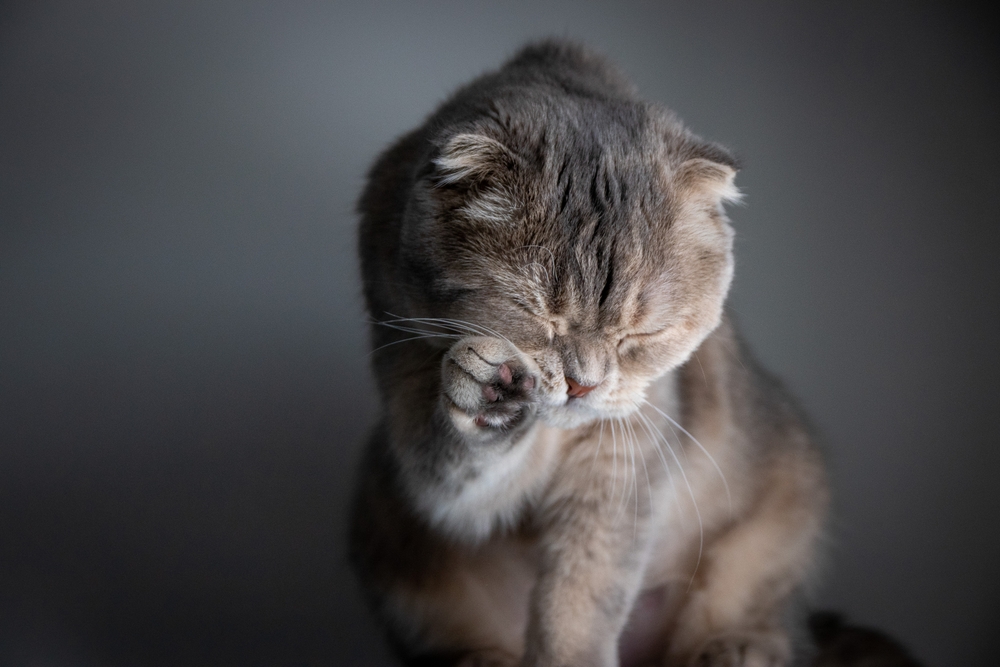
Cats have this adorable habit of licking themselves all over to stay clean. This self-grooming ritual works great for them because their saliva contains natural enzymes that break down dirt and oil. If humans attempted to adopt this method of cleanliness, it would not only be ineffective but downright unhygienic. Imagine licking your own elbow or trying to clean your feet with your tongue—it’s neither practical nor sanitary. In fact, according to Dr. Jane Brunt, executive director of the CATalyst Council, our skin and hair accumulate pollutants that would be harmful if ingested.
Aside from the hygiene nightmare, it could pose health risks for humans. Our bodies are not designed to handle ingesting the dirt and bacteria that collect on our skin. Not to mention, our tongues lack the special barbed texture that cats have, which helps them in their grooming process. This is a case where it’s best to stick with a shower. Trust us, soap and water are much more effective.
2. Napping All Day
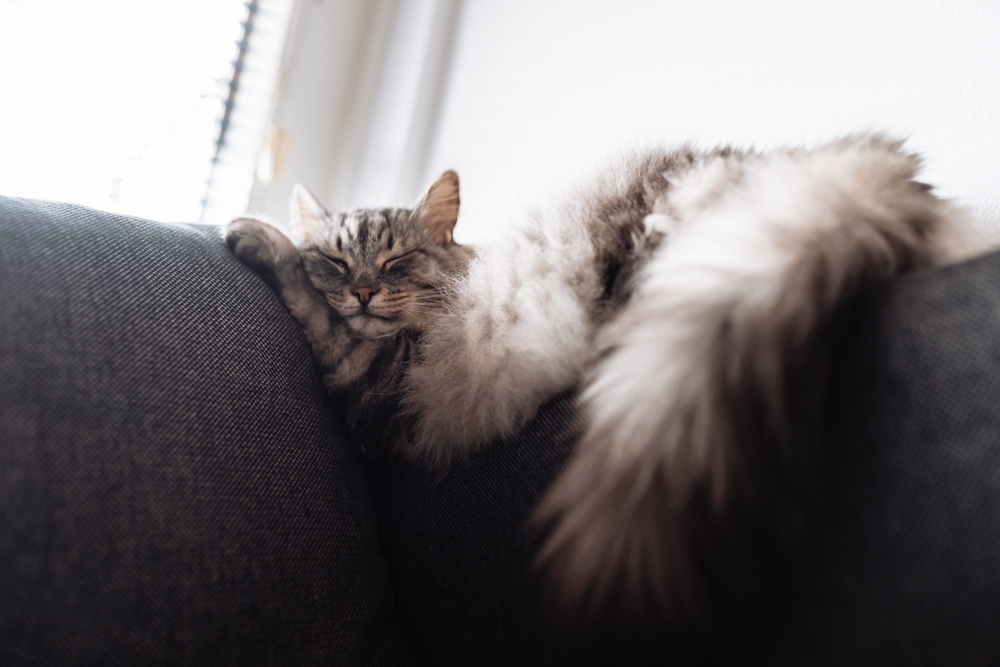
Cats can sleep up to 16 hours a day, and it’s a crucial part of their health routine. For them, long naps help conserve energy for hunting, even if it’s just to pounce on a toy mouse later. However, if humans slept that much, it would be considered unhealthy and could lead to a sedentary lifestyle. Too much sleep can actually make you feel more tired and is linked to various health issues. Humans need a balance of rest and activity to maintain optimum health.
Interestingly, while cats wake up refreshed and ready to play, you might wake up feeling groggy and disoriented after a long nap. It’s essential for humans to develop a consistent sleep schedule that allows for restorative sleep at night. Overindulging in sleep could also disrupt your body’s internal clock, making it difficult to fall asleep when you actually want to. Remember, moderation is key when it comes to sleep.
3. Eating Off The Floor
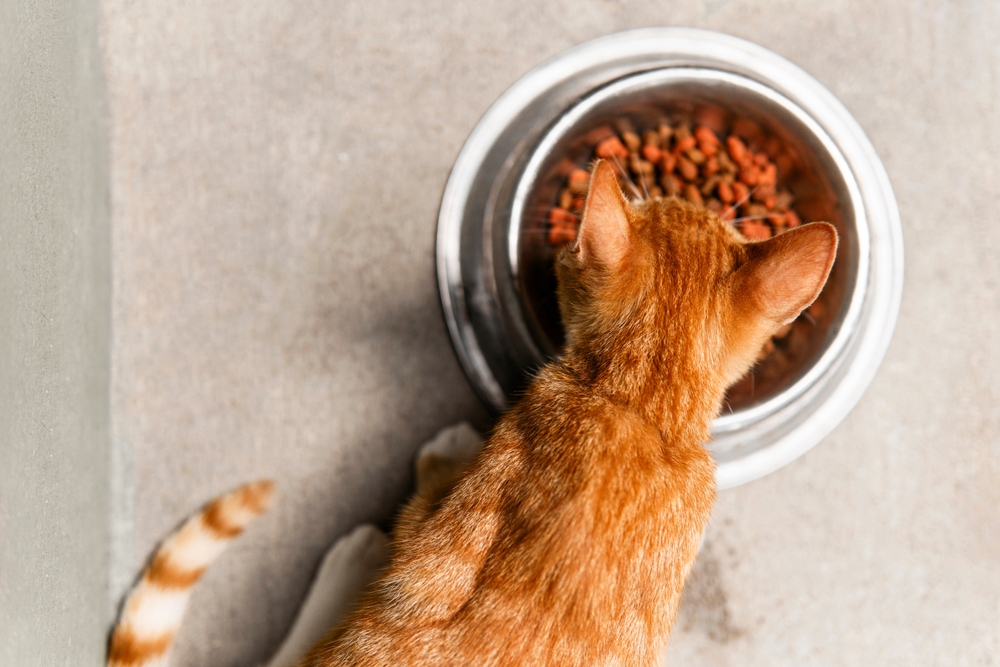
Cats have no problem munching on kibble that’s fallen to the floor. For them, it’s just another surface to explore, and with their natural curiosity, eating off the floor doesn’t seem to bother them at all. Humans, on the other hand, are not so lucky. Eating food that’s been dropped on the floor can expose you to bacteria and germs that can lead to foodborne illnesses. According to the USDA, the “five-second rule” is a myth and doesn’t prevent bacteria from contaminating dropped food.
The human digestive system is not equipped to handle the potential contaminants that might be lurking on surfaces, especially those that aren’t regularly sanitized. Eating off the floor could result in infections or an upset stomach, something most people would rather avoid. This is one instance where it’s better to imitate your cat by being curious, but not by following their dietary habits. Always strive for cleanliness and safety when it comes to food.
4. Drinking From The Toilet
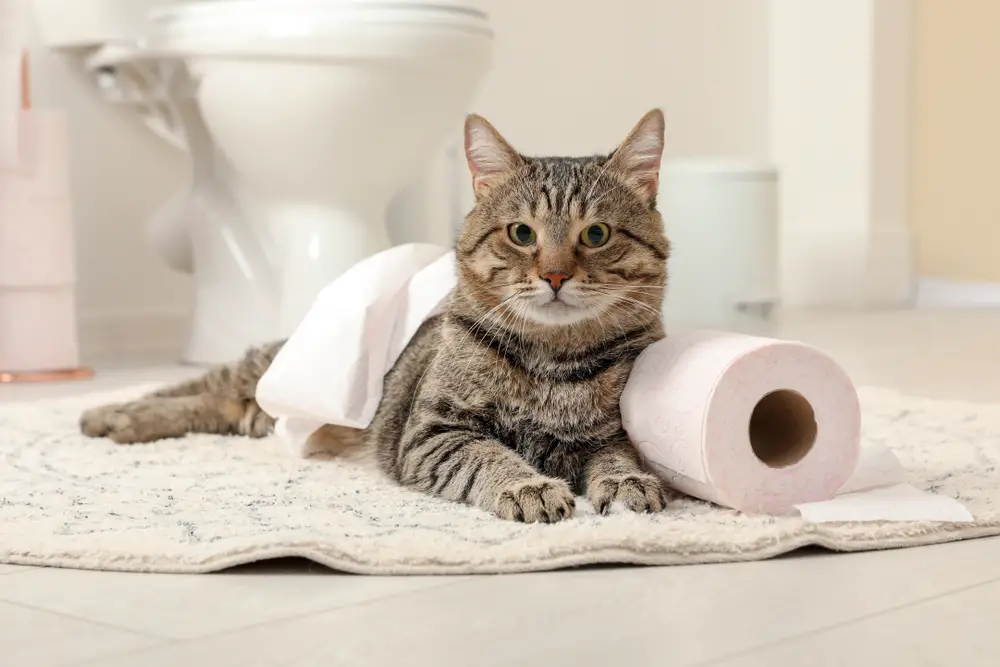
Cats often find the toilet bowl an irresistible source of water, despite having a clean bowl available. This is because the water in the toilet is constantly refreshed, and to a cat, it seems cooler and more appealing. Unfortunately, if humans were to follow suit, they’d expose themselves to harmful bacteria and pathogens. Toilets are breeding grounds for germs that can cause serious health issues if ingested.
Imagine having to explain to your doctor that you’ve been drinking from the toilet; it wouldn’t be a fun conversation. It’s crucial to remember that just because your cat does it doesn’t mean it’s safe for you. Keeping your body hydrated is important, but there are far better and safer ways to do it. Stick to drinking from a clean glass or bottle, and leave the toilet water to your cat’s inexplicable fascination.
5. Biting When Annoyed
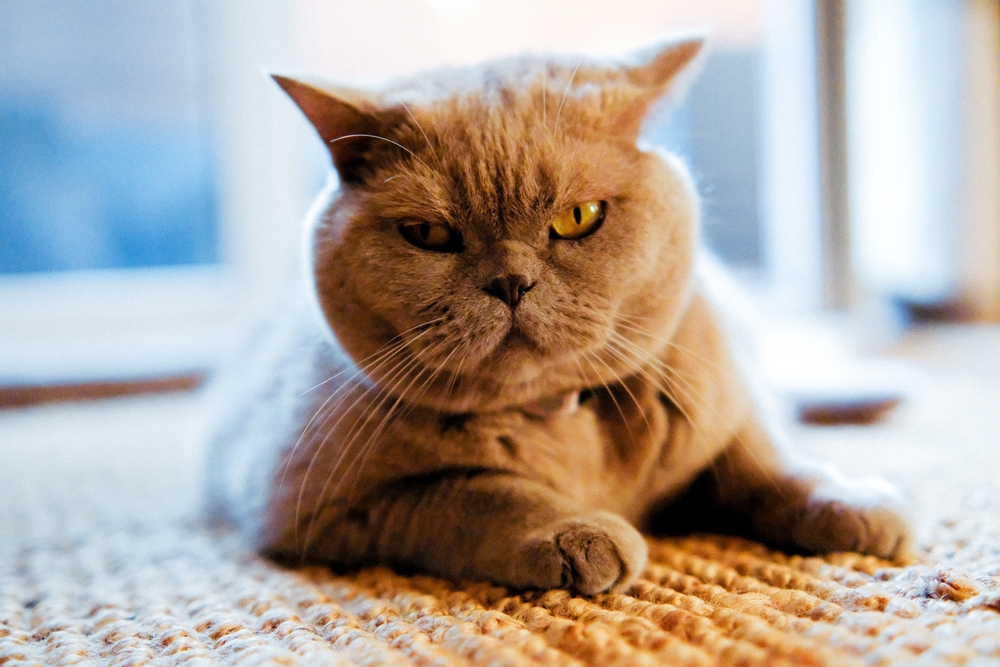
Cats often give a little nip when they’re feeling overwhelmed or just want to be left alone. For cats, it’s a form of communication and a way to say, “I’ve had enough!” Humans, however, can’t resort to biting others when they’re annoyed or stressed. Such behavior could lead to serious social and legal consequences, not to mention potential health risks from human bites. Dr. Sally Foote, a veterinarian specializing in animal behavior, explains that cats use biting as normal behavior, but humans need more constructive coping strategies.
Biting someone as a form of communication wouldn’t exactly make you many friends. It’s important for humans to express their needs and frustrations in healthier ways, such as through conversation or stress-relief techniques. If you’re feeling overwhelmed, taking a step back to breathe or talk it out with a friend or therapist is far more effective. Remember, words are always more potent than teeth.
6. Climbing On Everything

Cats are natural climbers and often scale furniture, curtains, and shelves without a second thought. Their agility and balance allow them to access high places with ease, providing them with a sense of safety and a good vantage point. If humans decided to climb on every available surface, it would likely end in disaster. Without the same balance and flexibility, you’d risk injury or breaking something.
Humans are just not built to navigate vertical spaces the way cats can. Our bodies lack the pointed claws and lithe muscles that allow cats to maneuver so gracefully. Attempting to climb bookcases or countertops might end with a trip to the emergency room rather than a feeling of accomplishment. It’s best to admire your cat’s climbing skills from a safe, grounded distance.
7. Bringing Home “Gifts”
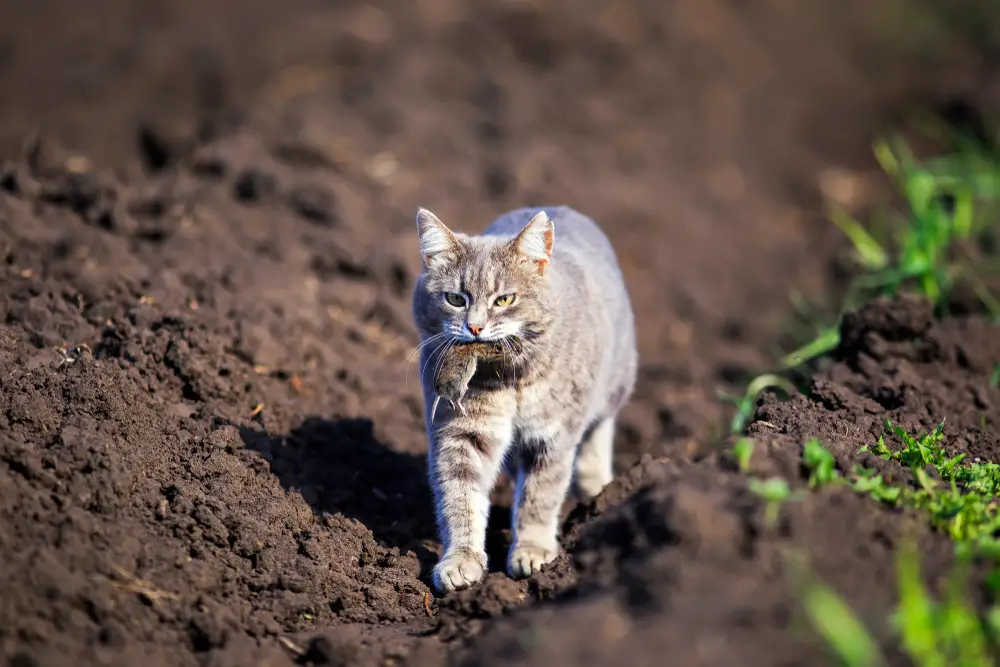
Cats have a habit of bringing home little “gifts” like mice or birds. It’s their way of showing affection and sharing their hunting success with you. However, if humans started bringing home random critters or odd finds, it might be seen as unsanitary or even alarming. The Centers for Disease Control and Prevention warn that handling wildlife can expose you to diseases and parasites that can be transmitted to humans.
Bringing home such “trophies” could also have serious impacts on your relationship with your neighbors or local wildlife. Unlike cats, who are following their instincts, humans have the responsibility to preserve and respect their environment. It’s much better to express your love and appreciation with thoughtful gestures that don’t involve dead animals. Stick to gifts that everyone can enjoy—like chocolates or flowers.
8. Staring Into Space
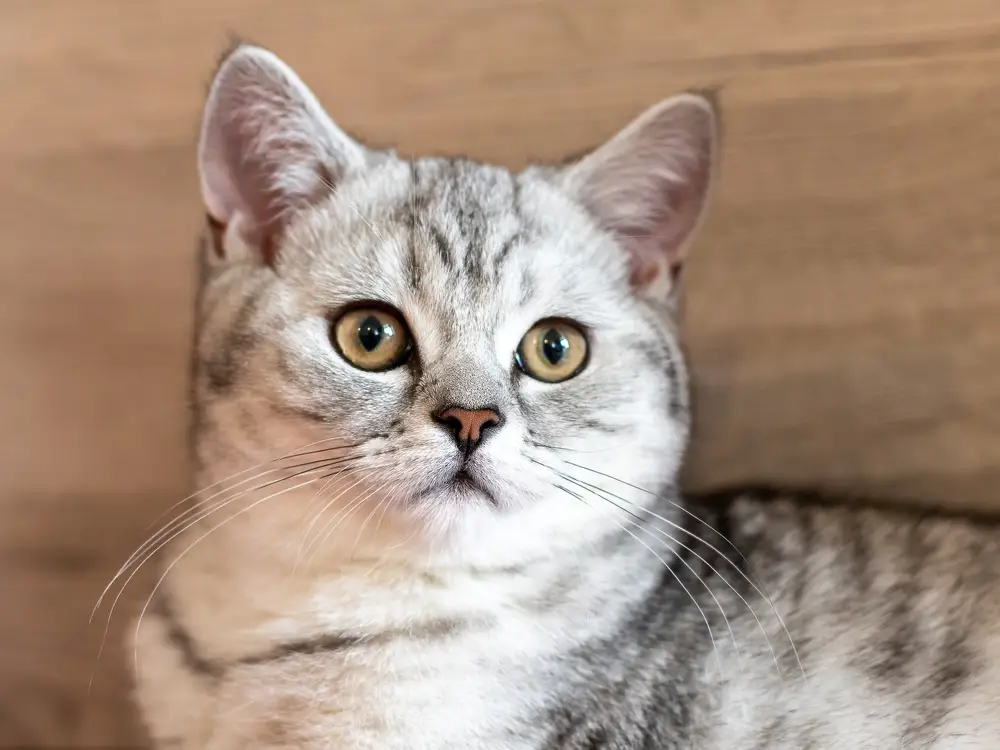
Cats can spend hours staring at nothing at all, seemingly lost in their own world. It’s part of their vigilant nature, always on the lookout for potential prey or danger. For humans, however, zoning out for extended periods might be considered unusual. While daydreaming is completely normal, too much of it can interfere with concentration and productivity.
If you find yourself staring into space too often, it might be a sign that you need a break or a change of scenery. Unlike cats, who can afford to be in a perpetual state of alertness, humans need to balance relaxation with focus. It’s important to stay engaged with the world around you and use your time intentionally. Turning those daydreams into plans or goals might be a better use of your mental energy.
9. Scratching Furniture
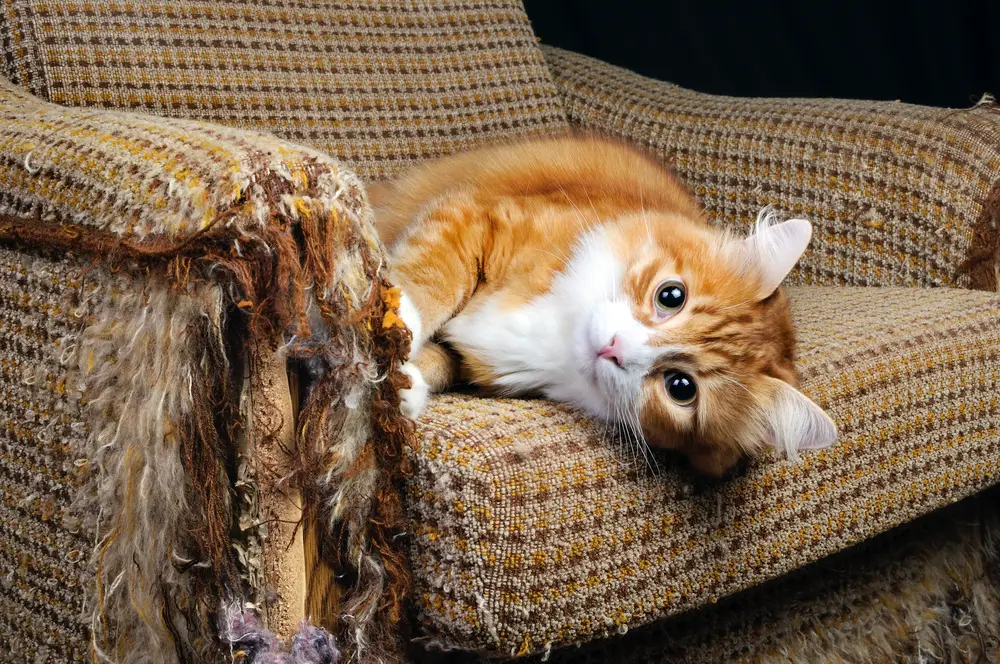
Cats scratch furniture to keep their claws sharp and to mark their territory. It’s a natural behavior that serves important physical and social functions for them. If humans took to scratching furniture, it would not only be destructive but completely ineffective at achieving any productive goal. Imagine the looks you’d get if you started clawing at the armrest of your office chair during a meeting!
While it’s fun to watch a cat go to town on a scratching post, humans have better alternatives for stress relief and self-expression. Whether it’s through art, exercise, or relaxation techniques, there are many ways to cope with life’s challenges that don’t involve shredding your couch. If you’re feeling the urge to act out, try channeling that energy into a hobby or activity that makes you feel good. Your furniture—and your friends—will thank you.
10. Ignoring You Completely
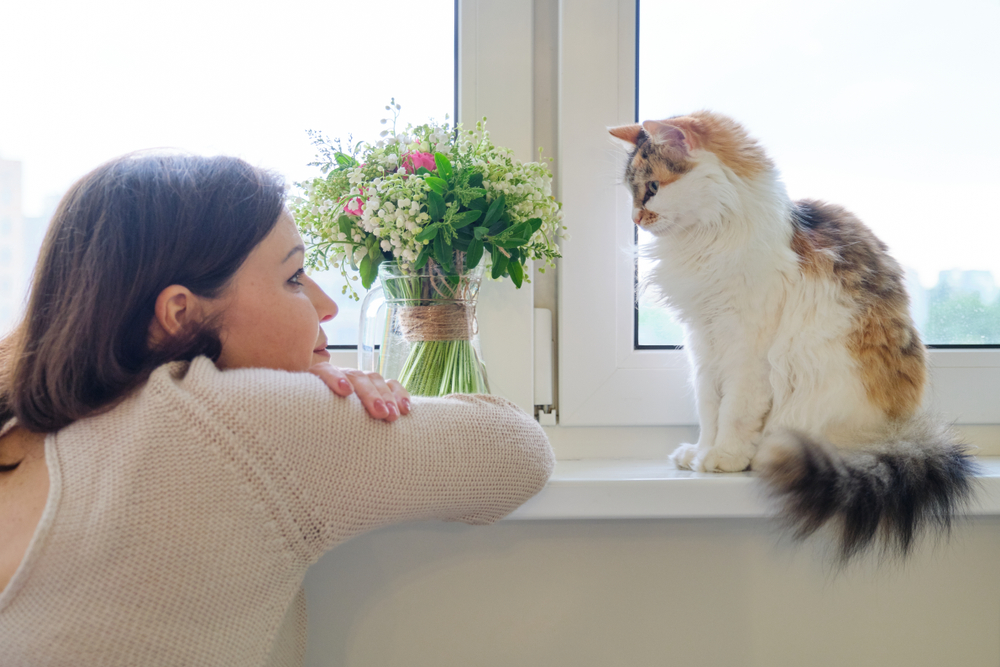
Cats are notorious for ignoring their humans when it suits them, a hallmark of their independent nature. Unlike dogs, cats don’t always come when called or acknowledge your presence with enthusiasm. Humans, on the other hand, can’t get away with completely ignoring people without social repercussions. Being dismissive or unresponsive can strain relationships and lead to misunderstandings.
While it’s important to take time for yourself, communication is key in human interactions. Ignoring someone can be perceived as rude or hurtful, and it’s rarely a good way to deal with conflict. Instead of turning a blind eye, try addressing issues directly and respectfully. This approach will help build stronger connections and promote understanding.
11. Running Around At Night
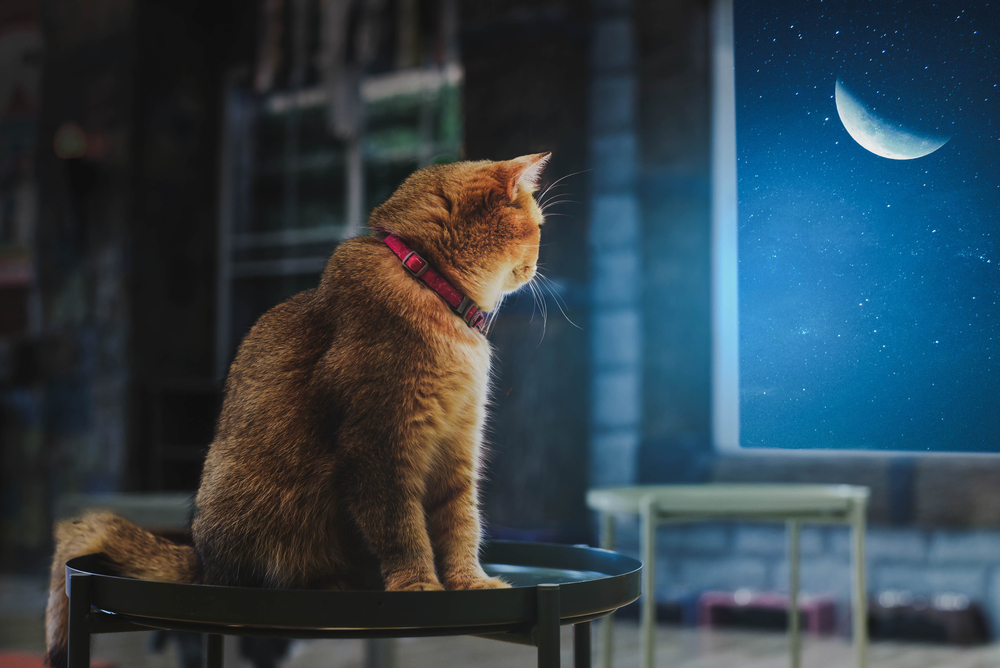
Cats are crepuscular, meaning they are most active during the dawn and dusk hours. This often results in the infamous “nighttime zoomies,” where cats dart around the house like furry little maniacs. Humans aren’t naturally inclined to be active at night, and disrupting your sleep cycle to mimic your cat’s energy bursts wouldn’t be ideal. Proper sleep is vital for health and well-being, and staying awake all night can throw off your body’s internal clock.
Staying up late may seem fun in the short term, but chronic sleep deprivation can lead to a host of health issues, including decreased cognitive function and increased stress. Unlike cats, who can sleep throughout the day, humans need consistent nighttime rest to function at their best. If you’re feeling restless, try incorporating regular exercise into your daily routine to channel your energy in healthier ways. Your mind and body will thank you for the balance.
12. Eating Grass
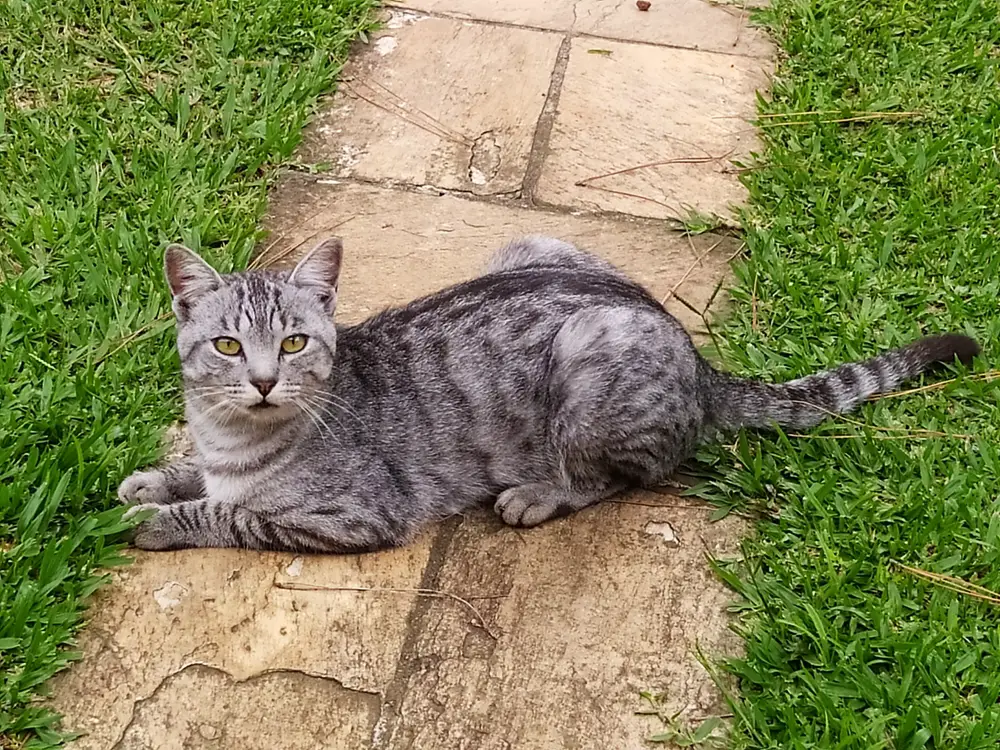
Cats sometimes eat grass to help with digestion or to induce vomiting when they’ve eaten something unpleasant. For them, it’s a natural remedy that can aid their digestive system. Humans, on the other hand, aren’t meant to consume grass, as it can be tough on our stomachs and may carry harmful bacteria or pesticides. Indulging in this habit could lead to digestive discomfort or worse.
While it might seem like a harmless curiosity, eating grass isn’t advisable for people. If you’re experiencing digestive issues, it’s better to seek medical advice rather than resorting to grazing. Unlike cats, we have the advantage of modern medicine and dietary supplements to address our health needs. So, the next time you see your cat chomping on grass, just be glad you have better alternatives.
13. Playing With Prey
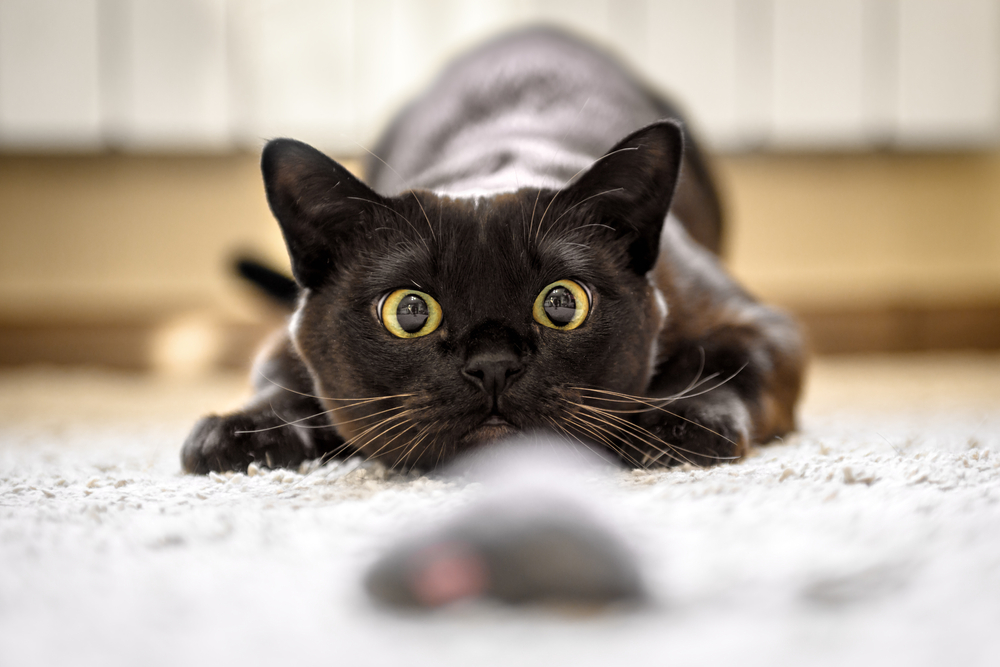
Cats have a hunting instinct that often leads them to “play” with their prey before eventually killing it. This behavior is more about honing their hunting skills than cruelty. Humans, however, would face serious ethical and legal ramifications if they attempted to play with their food or any living being in such a manner. Not only is it inhumane, but it would also raise significant moral concerns.
In contrast to cats, humans have the ability to empathize and understand the suffering of other living creatures. Respect for all forms of life should guide our actions and decisions. Instead of playing with prey, consider volunteering at an animal shelter or engaging in conservation efforts to support wildlife. These actions can satisfy your curiosity and compassion without causing harm.
14. Chasing After Shadows
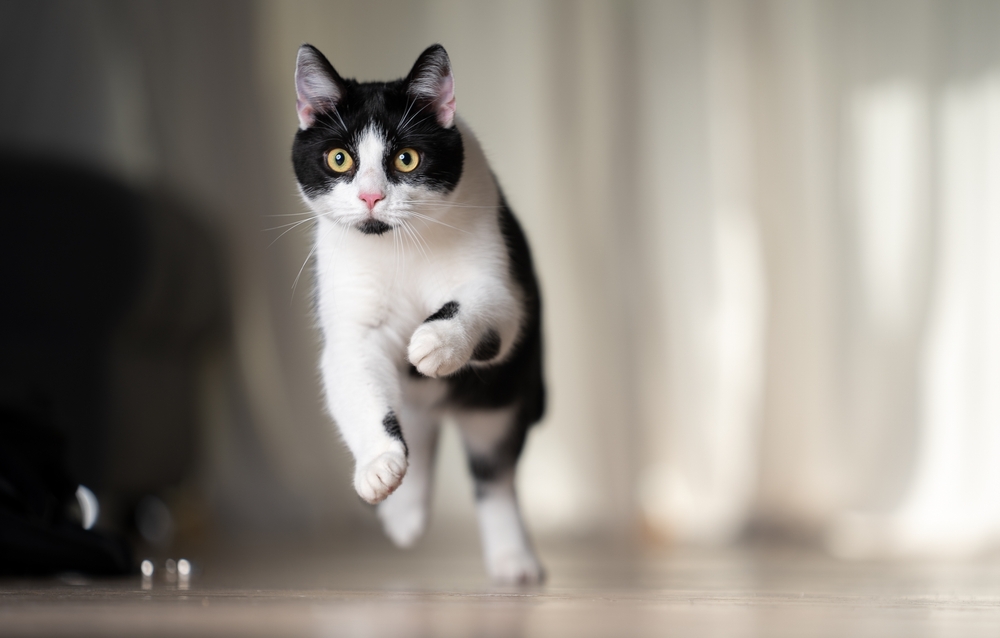
Cats are famously entertained by chasing after shadows or laser pointers. This simple game is a form of mental and physical stimulation for them and helps them stay active. Humans, however, might look a bit odd darting around the room after a shadow. It could lead to more than a few awkward moments and potentially dangerous situations if one gets too carried away.
While play is important for people, too, it usually takes a different form. Engaging in sports, puzzles, or creative activities can be just as fulfilling and far less embarrassing than chasing imaginary prey. Whether through a hobby or social interaction, humans can find more meaningful ways to engage their minds and bodies. Leave the shadow-chasing to the cats and focus on activities that bring you joy and fulfillment.
